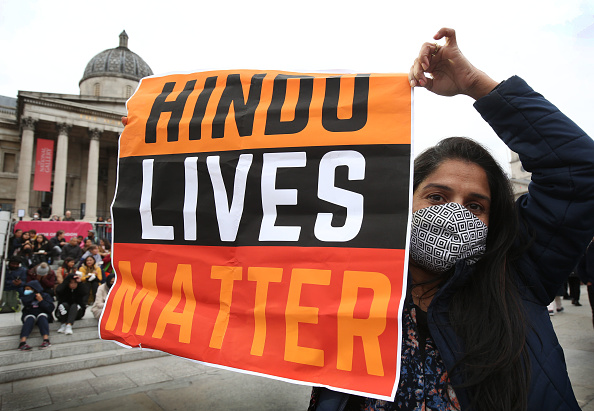
CIVIL servants lack an understanding of religion and faith, resulting in Hindus being served halal meat, Sikhs being mistaken for Muslims, and Christians were wrongfully arrested, as revealed by the government’s faith adviser Colin Bloom.
The 165-page Bloom Review Does government ‘do god’? is the broadest examination of how the government interacts with religion in a generation.
The Bloom Review, drawing on over 21,000 responses to the call for evidence, examines how the government should engage with faith groups in England.
After years of delays, the research was finally released on Wednesday yesterday (26). It revealed that government employees lacked a basic grasp of religion and suggested that all employees in the public sector get training.
Police officers who mistook Sikhs for Muslims or voiced worries about the kirpan, a ceremonial sword that Sikhs are required to wear as part of their religious practice, are just two instances of the religious ignorance mentioned in the study.
Patients were under pressure in the NHS to explore treatments that went against their religious convictions, such as abortion or chromosomal testing during pregnancy.
In addition, some patients received the incorrect food, with Hindus receiving Halal meals while others were turned down for prescriptions for drugs devoid of animal ingredients.
Additionally, police officials had requested that Sikhs take off their “five Ks,” or the five articles of religion they are required to wear at all times.
A “renaissance of public faith literacy” is needed, according to Bloom. In addition, he said that the “enduring lack of diversity among senior civil servants” may be to blame for the general lack of knowledge about different religions.
“The amounts of taxpayer money and public resources that have been wasted on wrongful arrests, judicial proceedings, and compensation highlights the need for improved faith literacy among policing authorities,” Bloom wrote.

The committee addressed the instance of a Christian who won a £2,500 payment for unlawful imprisonment after being accused of Islamophobia and expressed concerns about police arrests of street preachers.
Additionally, medical personnel misunderstood the significance of a Sikh’s turban in post-mortem exams and palliative conditions. In response to a question about NHS workers, one respondent stated: “They were asking Sikh men with beards to trim their beards at the start of the pandemic so that PPE would be able to fit them, and I was asked by some leading figures within the regulatory bodies as to why Sikh men couldn’t simply just have a trim rather than having to spend money on specialist equipment for them.”
Additionally, several NHS employees said that they felt “irrelevant” for their beliefs and unable to express it at work.

Bloom recommended that the government “take steps to ensure that everyone on the public payroll, including civil servants in Whitehall and local councils, NHS and public health staff, teachers in schools, colleges and universities, and police, prison and probation officers, are provided with consistent, quality faith literacy training.”
The evaluation urged the government to take more steps to combat forced marriages. “We need root-and-branch reform of how forced and coercive marriage is tackled by the government”, Bloom wrote.
Additionally, it said that Jewish yeshivas, Muslim madrassas, and other institutions that operate “like a school” must be registered and inspected.
The Bloom Review also stated that nationalist movements within the British Asian community have become more prevalent in recent years and could “destabilise British society”.
Colin Bloom has been appointed as the Faith Engagement Adviser at the Ministry of Housing, Communities and Local Government (MHCLG) to lead a review into how best the government should engage with faith groups in England.